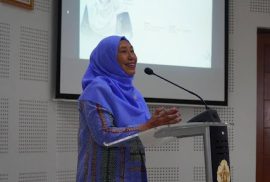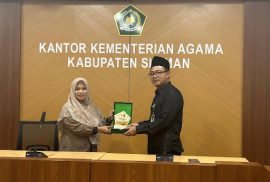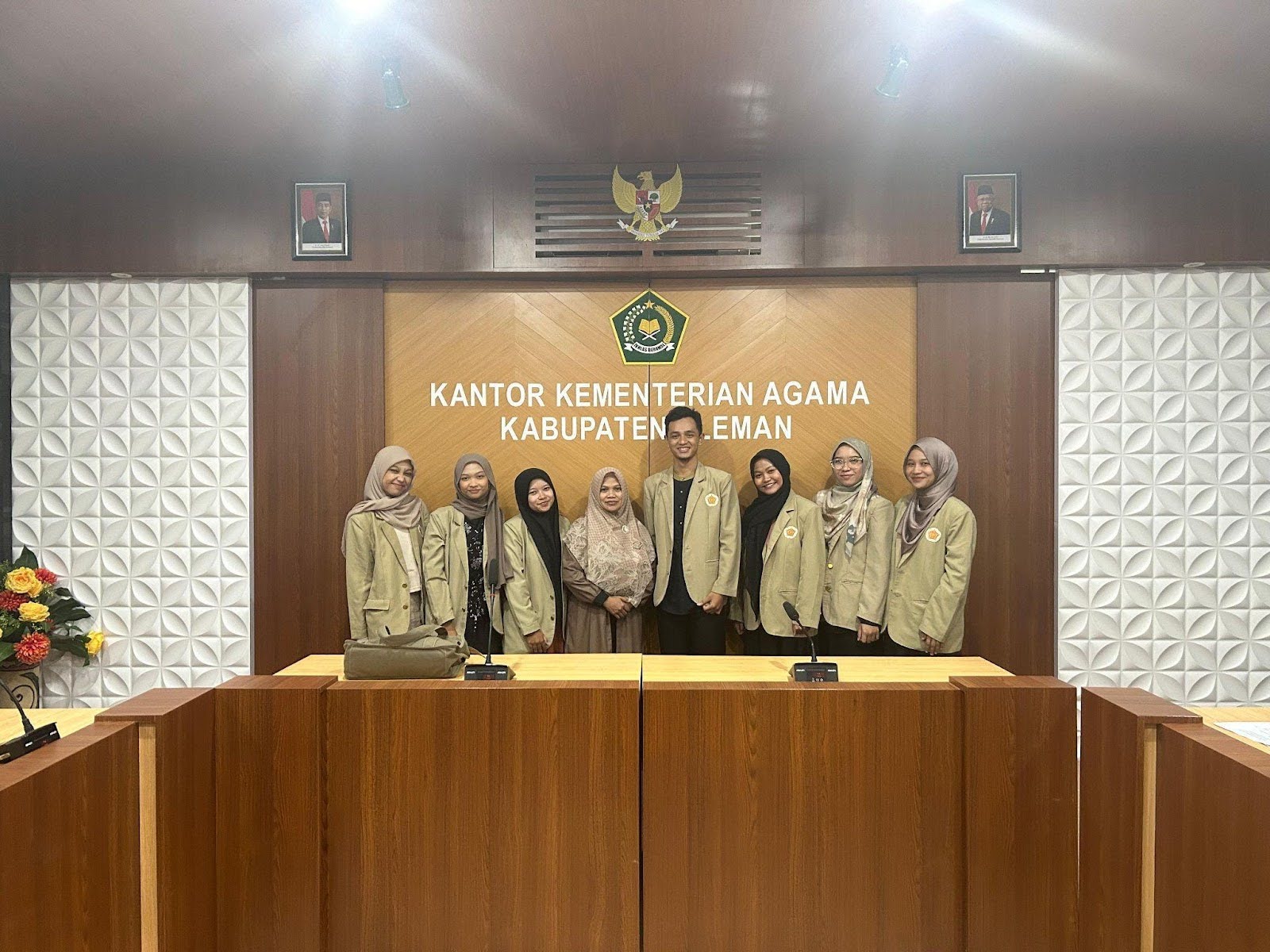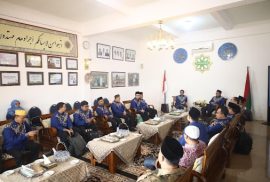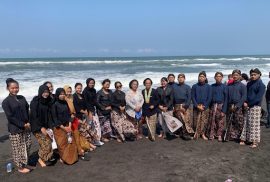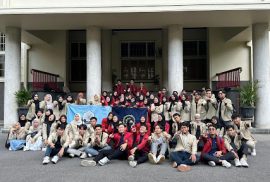The Master’s Program in Middle Eastern Cultural Studies in collaboration with the Bachelor of Arabic Literature Program at Gadjah Mada University held a National Seminar in order to Mangayubagya the retirement of Dr. Hindun, M.Hum with the theme Palestine: From Nakbah to Tufan Al-Aqsa on Wednesday, September 11, 2024 in Room 709, Soegondo Building, Faculty of Cultural Sciences. The event was attended by the deans of the Faculty of Cultural Sciences, namely Dr. Nur Saktiningrum, M.Hum. (Vice Dean for Academic and Student Affairs), Mimi Savitri, M.A., Ph.D (Vice Dean for Research, Community Service, Cooperation and Alumni), Suray Agung Nugroho, S.S., M.A. (Vice Dean for Finance, Assets and Human Resources), retired lecturers, alumni and students from the Master of Middle Eastern Cultural Studies and Arabic Literature. The event opened with remarks from representatives of the dean of FIB UGM and continued with giving impressions and messages from representatives of lecturers, alumni, and students from both study programs.
Dr. Hindun is a lecturer in the Intercultural department with expertise in Arabic literature, especially in the poetry of Resistance literature (Adabul Muqawamah). She studied Arabic literature from bachelor to doctoral degree and has served for 40 years at Universitas Gadjah Mada. She has pursued the study of Arab resistance literature, especially Palestine, which until now is still being fought against Israeli occupation. In her speech, Mrs. Hindun said that the struggle for Palestinian independence will never end. She appealed to the invited guests that it is not only the Palestinians who are struggling, but all people of the world who have a humanitarian spirit. Therefore, this seminar certainly provides a deeper insight into the history of the Palestinian conflict to the latest information in the area. For the younger generation, it is hoped that they can continue the relay of this struggle to defend Palestine.

